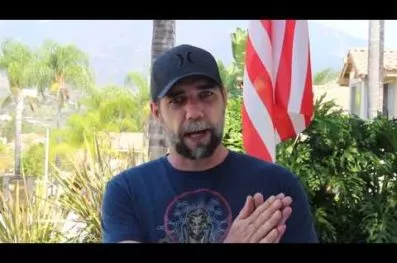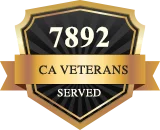Down Payment for a VA Loan

Va Loans
REAL ESTATE FOR VETERANS
Do You Need a Down Payment for a VA Loan?

Peter Van Brady
Founder of SoCal VA Homes
Author: Avoiding Mistakes & Crushing Your Deals Using Your VA Loan
Current “conforming VA loan limits” allow for 100% financing on a home purchase up to $417,000, including the VA funding fee. Thanks to the Housing and Economic Recovery Act of 2008, “high cost” loan limits are now established at the beginning of each year for counties where real estate prices are more costly. These higher loan amounts provide for 100% financing, for loan amounts in excess of $417,000.
But what if you want to finance a home purchase in excess of the county loan limit? VA loan amount guidelines will require that you contribute a down payment equal to 25% of the funds between the loan limit and the purchase price. Effectively, you provide the 25% “VA Guaranty” on the loan in excess of the loan limit, in the same way the VA guarantees 25% of the entire loan balance against default for the lender.
This brings up the question, if you want to buy a home, and you need a down payment, where are you going to pull the money from? If you were responsible enough to start saving for retirement at an early age, don’t sabotage your plan by liquidating those funds just because you think you need the cash for a down payment…or any other reason for that matter. Leave your retirement funds alone!
People in this position will often overlook actually borrowing the money as a solution, a smart financial strategy. Borrowing money, especially from a retirement plan, is a complicated subject. We live in a nation that gives mixed messages, saying both debt is wrong and at the same time, leverage (controlling an asset with borrowed money) can be good and can even build wealth. Leverage can also help you be a better steward of your own finances.
If you have established a retirement account, you are most likely able to borrow money from it. You MUST consider borrowing against it as an option to solve your cash crisis rather than liquidating the funds altogether.
Let’s examine many of the advantages of borrowing retirement funds rather than liquidating retirement funds. Wouldn’t you rather borrow money from yourself than close out and liquidate your most important fund representing your greatest long term financial security? While the idea may initially sound counter-intuitive, borrowing money can be a smart, strategic financial decision. In the context of borrowing for your down payment, if your proposed debt ratio (your proposed monthly debt payments divided by your gross income) will allow you to borrow a bit more, that plan of action will likely be far more productive for your financial well-being and your retirement strategy. You can typically borrow up to 50% of your retirement funds without penalty. The advantages include:
-
Often a better rate of interest than unsecured consumer loans.
-
Pay yourself back with interest.
-
Avoiding penalties and income tax liabilities.
Again, I’m not distributing tax advice, but if you chose to liquidate, the amount withdrawn from your plan would now be subject to income taxes, the opposite of what you achieved when you deducted the contribution from your taxable income in the year you contributed. When you choose to liquidate the funds from your retirement, income tax would be immediately withheld upon distribution. You would need to consider that subtraction from your funds when budgeting for a down payment. Alternatively, when borrowing against your retirement fund as opposed to liquidating, you’ll avoid the tax liability.
Additionally, there exists an early withdrawal penalty when liquidating your retirement plan before the age of 59 ½ However, there are a variety of exceptions to the 10% early withdrawal penalty, including military exceptions. Members of the military reserves also can receive early IRA distributions without being subject to the penalty under the following circumstances.
-
You were ordered or called to active duty after Sept. 11, 2001.
-
You were ordered or called to active duty for a period of more than 179 days or for an indefinite period because you are a member of a reserve unit.
-
The distribution is from an IRA or from an elective-deferral plan, such as a 401(k) or 403(b) plan or a similar arrangement and taken during the active duty period.
-
Early IRA withdrawals also are penalty-free in a few other instances, including a first time home purchase. Anyone, including Veterans can currently take advantage of this first-time homebuyer exemption. You qualify under this tax rule as long as you (or your spouse) didn't own a principal residence at any time during the previous two years. This wouldn’t apply if you were selling your home and buying a larger home. And that’s a common circumstance when our VA buyers need some extra money for the down payment on the new larger home.
-
Payments for mortgage interest or payments on a business loan are tax deductible. Payments to your retirement plan are not tax deductible. Therefore, you're repaying your retirement loan with “after-tax money” (income that has already been taxed), and then later, when you withdraw the funds in retirement, you'll pay taxes on that same money again. In this manner, borrowing against your retirement plan could be considered paying taxes twice.
-
In many plans, borrowing money from your 401(k) means that you're selling positions that are invested, equal to the loan amount. You’ll be forgoing the potential profits and the power of compounding your returns when the investments appreciate. And as you pay back the loan, you're repurchasing the previously sold shares but at current (and probably higher) prices.
-
Some plans won't allow you to contribute to your 401(k) until you've paid off your loan.
-
Many retirement plan loans must be repaid within five years. If you can’t repay in that time frame, your employer will treat the loan balance as a distribution, triggering income taxes and the ten percent early withdrawal penalty if you're under age 59½. You could also be denied the opportunity of contributing to the plan in the future.
-
If you leave your job, the loan may become due and payable within a short period of time. If you don't repay the loan when due, the IRS will consider the unpaid balance to be taxable income.
The MOST important reason NOT to borrow OR to liquidate from your retirement account is what you are compromising! Ultimately you’ll need to retire AND live somewhere, likely in a home that you own. I know it’s hard to consider both goals of home ownership and retirement. But the time to allow your retirement investments to compound and the act of exercising consistency in your contributions are the key elements to success in retirement planning. It is important to save at every age, especially in the beginning of your career, so that your nest egg has time to grow. Don’t make the mistake of thinking that you are too young to save for retirement. You only have so much time in this life to invest. And that time, allowing your investments to experience compounded growth, makes all the difference in the world! For a more detailed discussion, see the chapter, Mission Control: Financial Success for Life.
For assistance in determining what your appropriate down payment should be to meet your needs and the means by which to obtain your down payment, let So Cal VA Homes help. Call us at 949-268-7742.
As Seen on ABC 10 5:00 O’Clock News












